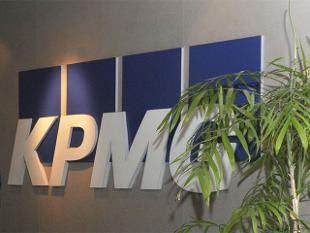Investors may be salivating for a piece of Saudi Aramco when the kingdom of Saudi Arabia sells a small chunk of its gigantic state-owned oil company, probably in 2017. But potential buyers ought to beware.
Oil producers have already endured an enormous shock during the last two years, with the benchmark price for Brent crude plunging from $115 a barrel in 2014 to about $30 earlier this year, and now rising back to around $45. The oil bust has caused severe stress for oil producers such as Russia and Venezuela, and caused Saudi Arabia, the world’s largest oil producer, to rethink its priorities.“I think they’re hedging the uncertainty that their oil is going to be worth less,” Matthew Weatherly-White, founder of the Caprock Group, tells me in the video above. “Even more dramatically, there might be stranded carbon assets they own, and by that I mean assets that are simply worth nothing.”
The Saudis plan to offer about 5% of the shares in Aramco to the public as a way to raise cash they can invest in other things, to diversify their oil-dependent economy. That gives Aramco an implied value of $2 trillion or so, which would be six times the market value of Exxon Mobil (XOM) and make Aramco the world’s largest oil company, by far.
But oil may face challenges a lot worse than the weak demand, oversupply and plunging prices of the last two years. A historic agreement made last December among 196 different countries, known as COP21, could bring strict new rules on the use of oil and other fossil fuels in many nations, essentially making it more expensive and encouraging other forms of energy use. At the same time, carbon alternatives such as solar and wind power and electric vehicles are getting cheaper and more widespread.
The two trends combined could spell a gradual end for oil and a long-term decline in the Saudis’ most valuable asset. “I think what the Saudis are doing is looking at the uncertainty in the future of oil and saying, ‘we’ve got this $2 trillion asset we’re sitting on. It’s possible it might be worth less in the future because of the stroke of a regulator’s pen, or because the market deems it to be less than it is right now’,” Weatherley-White says.
There have been many extreme predictions relating to oil, from the “peak oil” theory that goes back decades to the bottomless oil some analysts now think producers can churn out indefinitely, on account of fracking and other new technology. If there's one constant, it's that forecasters tend to be terrible at predicting what will happen to the price and suppy of oil.
So it might be shrewder to consider a range of scenarios that could explain the Saudis’ willingness to sell a stake in Aramco. Weatherley-White sees three: The Saudis might simply be making a modest effort to diversify and become less dependent on oil, which would be smart. Or they could be sitting on considerably less oil than the public thinks, and looking to sell while the rest of the world thinks the emperor is still wearing clothes. Or, finally, the Saudis may be running short of cash due to expensive wars with bordering states and the costly lifestyles of its royals, and looking to bolster its reserves, without explictly saying so.
If the Saudis are basically betting against the future of oil, it would probably be shrewd for ordinary investors to follow the lead and assess the vulnerability of their own portfolios. “Look at the businesses that might have some climate risk embedded in them,” Weatherley-White advises. That includes more than just energy firms. Insurers, for instance, might be exposed to rising claims caused by higher sea levels and more violent weather caused by climate change. Transportation companies might have to alter routes and incur extra costs to avoid low-lying or stormy areas. And agriculture may shift further north, as once-frigid areas warm, becoming more suitable for crops. Who knows, even the Saudis might get into farming.
 NEW DELHI: The government raised Rs 8,152 crore in 2015-16 by selling bonus debentures of NTPC to EPFO, Parliament was informed today.
NEW DELHI: The government raised Rs 8,152 crore in 2015-16 by selling bonus debentures of NTPC to EPFO, Parliament was informed today. 



